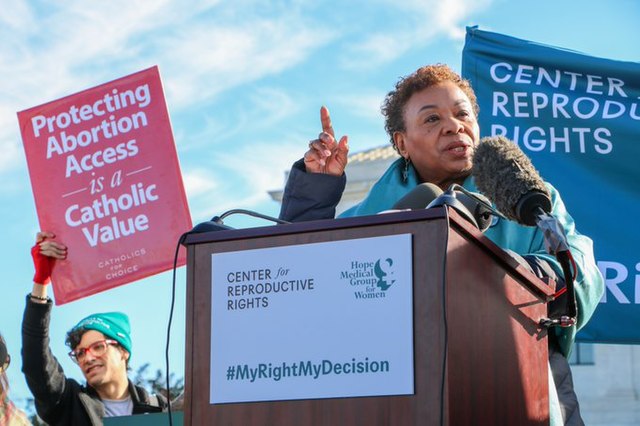After the Supreme Court struck down Roe v. Wade (court ruling on the U.S. Constitution’s duty to protect women’s individual freedom in choosing to have an abortion without government restriction) in recent weeks, Latinas across the country have been organizing or restructuring support networks to ensure access to care. reproductive health, as the new restrictions disproportionately affect Hispanic families.
Volunteer work has grown across the country, forming networks in which women offer not only cash donations, but also other services to help women in need of care and access to abortion. With nearly two dozen states making the procedure inaccessible after the Supreme Court ruling, grassroots groups that fuel abortion access networks say the new volunteers and allies are crucial to the growing need for care.
According to volunteer organizations, the growing abortion restrictions unfairly affect Latino families in the region: “Hispanics in the South account for 29% of the nation’s Hispanic population growth”, as
reported by NBC.
The non-profit organization
Florida Access Network and co-executive director Stephanie Loraine Piñeiro, “who heads the only abortion fund led by queer people of color in the state”, said to NBC that “her organization has seen an increase in support and donations. […] We fill in a lot of the gaps in an economy that makes it impossible for
people to live and to have savings”.
“When the organization receives a request for help, they assess what kinds of resources a person needs to be able to access an abortion, including stipends for childcare or gas and other needs. If the Florida Access Network is unable to fully meet a person's financial needs, they reach out to other organizations that do similar work across the country to help make up the difference”, said Piñeiro to NBC.
While reproductive age women of all races and ethnicities are at risk of unintended pregnancy, Hispanic and Black women face a disproportionally higher risk, according to research published in 2020 in the peer-reviewed journal
Contraception and Reproductive Medicine. “Only 29 states and Washington, D.C., report racial and ethnic data on abortion to the Centers for Disease Control and Prevention, according to the Pew Research Center”, observes NBC.
The Pew Research shows that in 2019, 66% of all women who had abortions were women of color: “among those ages 15 to 44, there were 23.8 abortions per 1,000 Black women; 11.7 abortions per 1,000 Hispanic women; 6.6 abortions per 1,000 white women; and 13 abortions per 1,000 women of other races or ethnicities”.
According to the NBC publication, “In Washington, D.C., Daniela Ochoa of All* Above All, a nonprofit organization promoting affordable access to abortions, has donated more money to local abortion funds, particularly grassroots ones”. According to Ochoa, “these grassroots groups urgently need the funds not only to subsidize abortion care services, but to train and integrate more volunteers”.
In the state of North Carolina, the abortion ban is not yet in effect, and the legality of the act remains statewide until local legislators enforce it. According to the NBC, the “Poder NC Action, a progressive nonprofit group that supports abortion rights in their efforts to mobilize Latino voters ahead of the midterm elections. For her, a chance at a bigger family is on the ballot in November”.
 commons.wikimedia.org
commons.wikimedia.org











